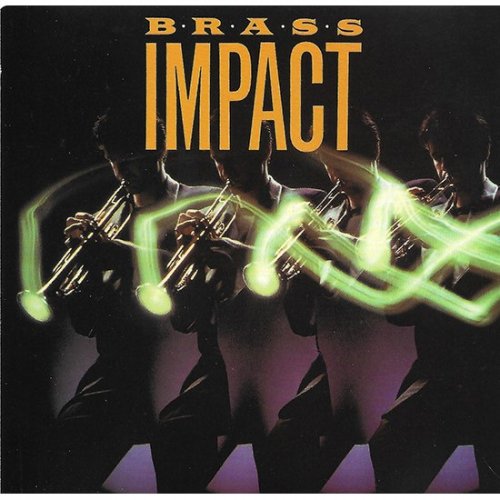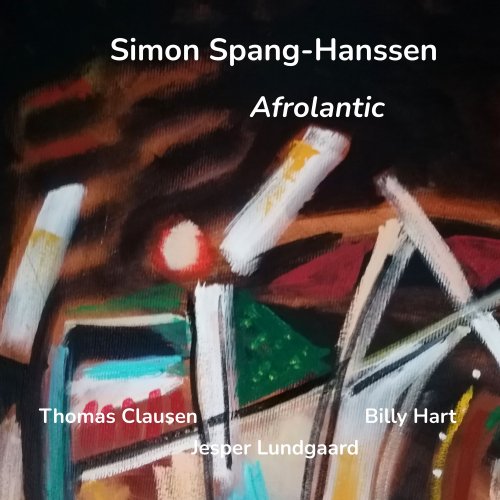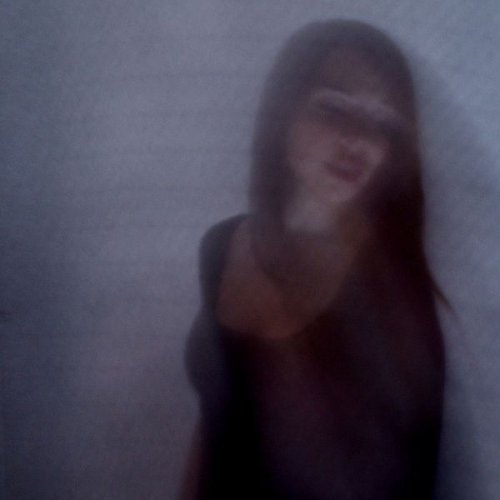Trio Parnassus, Gérard Caussé - Boëllmann: Chamber Music (2012)
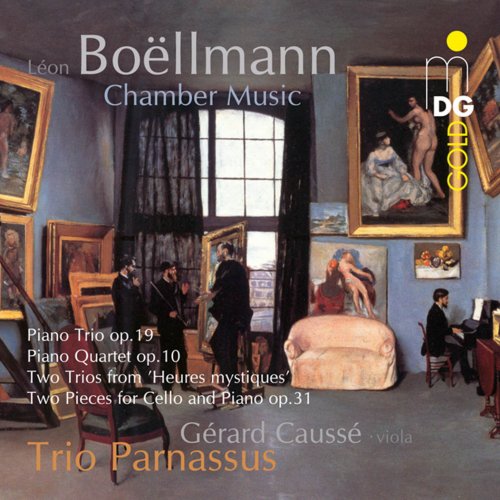
Artist: Trio Parnassus, Gérard Caussé
Title: Boëllmann: Chamber Music (2012)
Year Of Release: 2012
Label: MDG Gold
Genre: Classical
Quality: FLAC (tracks)
Total Time: 01:12:28
Total Size: 316 Mb
WebSite: Album Preview
Tracklist:Title: Boëllmann: Chamber Music (2012)
Year Of Release: 2012
Label: MDG Gold
Genre: Classical
Quality: FLAC (tracks)
Total Time: 01:12:28
Total Size: 316 Mb
WebSite: Album Preview
1 Trio for Viola, Violoncello and Piano in G Major, Op. 19: I. Introduction, Allegro 08:49
2 Trio for Viola, Violoncello and Piano in G Major, Op. 19: II. Andante Molto 08:09
3 Trio for Viola, Violoncello and Piano in G Major, Op. 19: III. Scherzo. Allegro 03:19
4 Trio for Viola, Violoncello and Piano in G Major, Op. 19: IV. Finale. Allegro vivo 09:18
5 Quatuor for Viola, Alto, Violoncello and Piano in F Minor, Op. 10: I. Allegro un poco moderato 08:56
6 Quatuor for Viola, Alto, Violoncello and Piano in F Minor, Op. 10: II. Scherzo. Presto 03:43
7 Quatuor for Viola, Alto, Violoncello and Piano in F Minor, Op. 10: III. Andante 07:41
8 Quatuor for Viola, Alto, Violoncello and Piano in F Minor, Op. 10: IV. Finale. Allegro 08:37
9 2 Pieces for Cello and Piano, Op. 31: I. Valse lente. moderato 04:22
10 2 Pieces for Cello and Piano, Op. 31: II. Menuet. allegro 04:57
11 2 Piano Trios from "Heures Mystiques": I. Andante 02:05
12 2 Piano Trios from "Heures Mystiques": II. Largo 02:32
Performers:
Gérard Caussé (viola)
Trio Parnassus
French composer Léon Boëllmann (1862-1897) was, throughout his rather short life, primarily an organist and choirmaster. Organ works form the highest percentage of his creative output as a composer, and one of them in particular, the famous and admirable Suite Gothique, is probably the piece that prevented his name from falling into oblivion. It boasts an extremely lyrical and romantic Prière à Notre-Dame and ends with a rousing and powerful Toccata. It's an organ work that I myself have played many times over the years just for the utter pleasure of it.
Listening to the chamber works on this CD, you would be hard-pressed to tell that Boëllmann was an organist. Most organist-composers have a tendency to transfer the techniques involved in the playing of a pipe organ to their other non-organ compositions, and it usually shows. But not in Boëllmann's case. The fluid lines and intricate counterpoint of the music are perfectly adapted to the trio and quartet formats. For example, the Piano Trio Op. 19 opens with an appealing six note ascending motif that the composer develops and works out in every detail, seemingly without stopping to breathe along the way. It's followed by a sweeping and constantly moving slow movement. Both the Scherzo and final Allegro vivo demand pinpoint accuracy from all the players, always well balanced by a warm-hearted and passionate delivery. Innovation is always at play throughout the Piano Quartet Op. 10, which again displays a high degree of fluid and extensive linear development for an organist.
Trio Parnassus are known for unearthing overlooked works, like the chamber music of Niels Wilhelm Gade (reviewed here), or Benjamin Godard (reviewed here), and affording them the same attention and respect otherwise reserved for the old standards. They prove once again, within this MDG recording of the chamber music of Léon Boëllmann, that pushing beyond the status quo can indeed reap rewards and expand everyone's musical horizon.
Listening to the chamber works on this CD, you would be hard-pressed to tell that Boëllmann was an organist. Most organist-composers have a tendency to transfer the techniques involved in the playing of a pipe organ to their other non-organ compositions, and it usually shows. But not in Boëllmann's case. The fluid lines and intricate counterpoint of the music are perfectly adapted to the trio and quartet formats. For example, the Piano Trio Op. 19 opens with an appealing six note ascending motif that the composer develops and works out in every detail, seemingly without stopping to breathe along the way. It's followed by a sweeping and constantly moving slow movement. Both the Scherzo and final Allegro vivo demand pinpoint accuracy from all the players, always well balanced by a warm-hearted and passionate delivery. Innovation is always at play throughout the Piano Quartet Op. 10, which again displays a high degree of fluid and extensive linear development for an organist.
Trio Parnassus are known for unearthing overlooked works, like the chamber music of Niels Wilhelm Gade (reviewed here), or Benjamin Godard (reviewed here), and affording them the same attention and respect otherwise reserved for the old standards. They prove once again, within this MDG recording of the chamber music of Léon Boëllmann, that pushing beyond the status quo can indeed reap rewards and expand everyone's musical horizon.
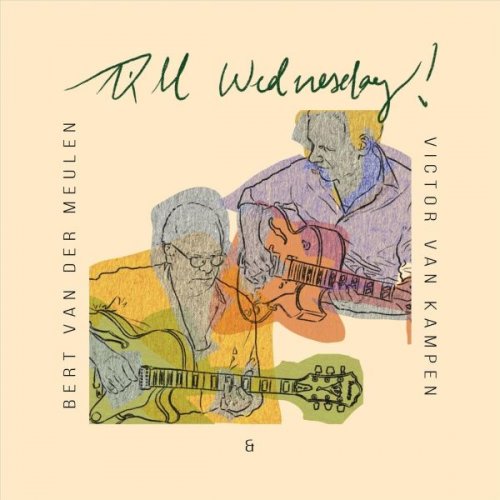
![Barry Adamson - SCALA!!! (Original Music by Barry Adamson) (2026) [Hi-Res] Barry Adamson - SCALA!!! (Original Music by Barry Adamson) (2026) [Hi-Res]](https://img.israbox.com/img/2026-01/15/0abtjshwyq9rm478molnofe94.jpg)
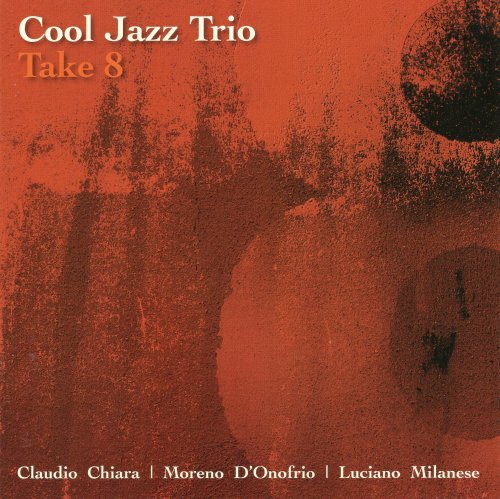
![Marco Detto - Improvvisamente (2026) [Hi-Res] Marco Detto - Improvvisamente (2026) [Hi-Res]](https://www.dibpic.com/uploads/posts/2026-01/1768638914_f4xbzset03dwk_600.jpg)
![Petros Klampanis - Minor Dispute (2025 Remaster) (2026) [Hi-Res] Petros Klampanis - Minor Dispute (2025 Remaster) (2026) [Hi-Res]](https://www.dibpic.com/uploads/posts/2026-01/1768403356_jyohrjvwmk7at_600.jpg)
